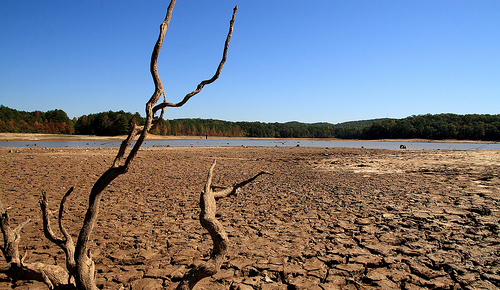
The countries around the Mediterranean basin face water problems including water shortages and floods that can impact food availability, cause epidemics, and threaten life and infrastructures. These problems are due to a combination of inadequate planning and management policies and of poor capability to predict hydro-meteorological and climatic hazards.
There are important gaps in our understanding of the Mediterranean water cycle and its dynamics, including the impact of a changing climate and human activity on extremes as well as on water availability.
The HyMeX (Hydrological cycle in the Mediterranean Experiment) program is a 10-year concerted experimental effort at the international level aiming at fulfilling this gap while advancing the scientific knowledge of the water cycle variability in all compartments (land, sea and atmosphere) and at various time and spatial scales, with a special focus on hydro-meteorological extremes. It also aims to facilitate the multidisciplinary and seamless analysis needed to assess the social and economic vulnerability to hydro-meteorological hazards and the adaptation capacity of the Mediterranean territories and populations in the context of global climate change.
In this paper recently published on Bulletin of the American Meteorological Society journal, a team of scientists (among them, CMCC researchers S. Gualdi and P. Lionello from SERC and ANS Division respectively) provides an overview of its aims, strategies and major issues.
The abstract of the paper:
The Mediterranean countries are experiencing important challenges related to the water cycle including water shortages and floods, extreme winds and ice/snow storms that impact critically the socio-economic vitality in the area (causing damage to property; threatening lives; affecting the energy and transportation sectors, etc.). There are gaps in our understanding of the Mediterranean water cycle and its dynamics, which include the variability of the Mediterranean Sea water budget and its feedback on the variability of the continental precipitation through air/sea interactions, the impact of precipitation variability on aquifer recharge, river discharge, soil water content and vegetation characteristics specific of the Mediterranean basin and the mechanisms that control the location and intensity of heavy precipitating systems which often produce floods.
The HyMeX (Hydrological cycle in the Mediterranean Experiment) program is a 10-year concerted experimental effort at the international level aiming at advancing the scientific knowledge of the water cycle variability in all compartments (land, sea and atmosphere) and at various time and spatial scales. It also aims at improving the processes-based models needed for forecasting hydro-meteorological extremes and the models of the regional climate system for predicting regional climate variability and evolution. It finally aims at assessing the social and economic vulnerability to hydro-meteorological natural hazards in the Mediterranean and the adaptation capacity of the territories and populations therein to provide support to policy makers to cope with water related problems under the influence of climate change, by linking scientific outcomes with related policy requirements.
Read the integral version of the paper (preliminary accepted version):
Drobinski P., Ducrocq V., Alpert P., Anagnostou E., Béranger K., Borga M., Braud I., Chanzy A., Davolio S., Delrieu G., Estournel C., Filali Boubrahmi N., Font J., Grubisic V., Gualdi S., Homar V., Ivancan-Picek B., Kottmeier C., Kotroni V., Lagouvardos K., Lionello P., Llasat M. C. , Ludwig W., Lutoff C., Mariotti A., Richard E., Romero R., Rotunno R., Roussot O., Ruin I., Somot S., Taupier-Letage I., Tintore J., Uijlenhoet R., Wernli L.
HyMeX, a 10-year Multidisciplinary Program on the Mediterranean Water Cycle
2014, Bulletin of the American Meteorological Society, DOI: 10.1175/BAMS-D-12-00242.1


